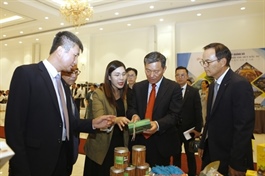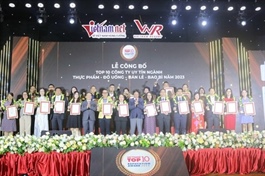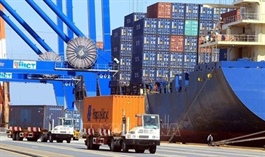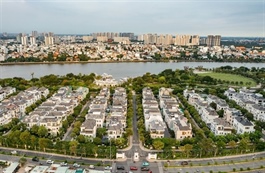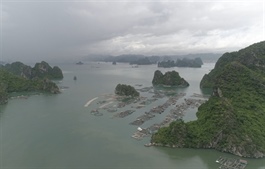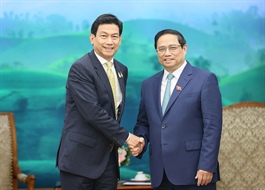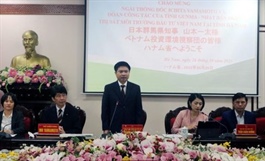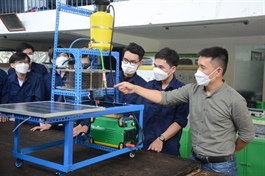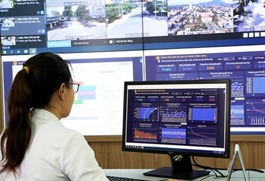Vietnam wants World Bank's support in key transport infrastructure projects
Vietnam wants World Bank's support in key transport infrastructure projects
Vietnam's public debt, government debt, and state budget deficit are well managed and remain within acceptable limits, allowing room for new ODA loans.
Vietnam and the World Bank should continue cooperating on strategic infrastructure projects, including the North-South expressway, Cantho – Ho Chi Minh City, and Hanoi – Hoa Lac Hi-tech Park railway projects.
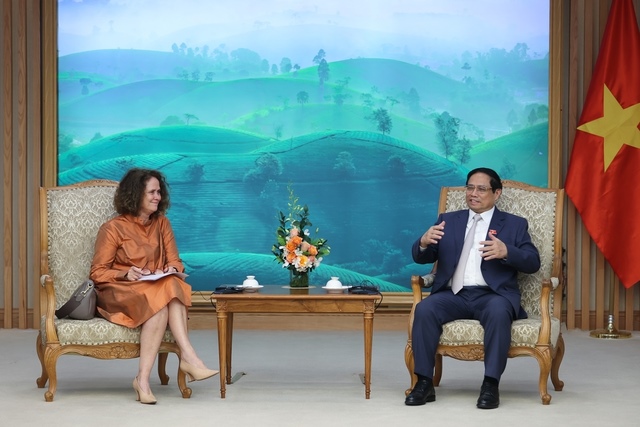
Prime Minister Pham Minh Chinh and World Bank Country Director to Vietnam Carolyn Turk at the meeting. Photo: Nhat Bac |
Prime Minister Pham Minh Chinh shared the view during a meeting with World Bank Country Director to Vietnam Carolyn Turk on October 27.
During the recent ASEAN Summit in Indonesia, the Prime Minister of Vietnam met with the President of the World Bank, Ajay Banga. Following this meeting, the two sides exchanged letters to discuss strategies for enhancing the partnership between Vietnam and the World Bank. They also explored various areas where cooperation can be further strengthened.
In the meeting with World Bank Country Director to Vietnam Carolyn Turk, Chinh emphasized the Vietnamese Government's regard for the World Bank as a valuable friend and a crucial development partner.
He expressed gratitude for the World Bank's consistent support and positive contributions to Vietnam's socio-economic development since 1993.
"This support has included policy advice and financial assistance for Official Development Assistance (ODA) and loan projects," said Chinh, while extending his thanks to Turk and her colleagues for their contributions to Vietnam's progress.
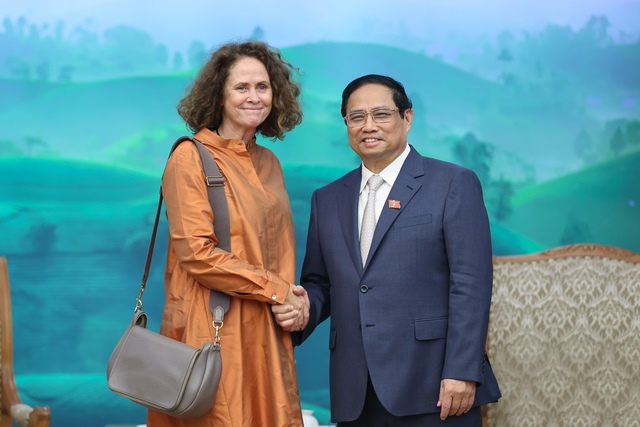
Ninh Co River Mouth Improvement Project, financed by the World Bank with an investment cost of US$154 million. Source: Ministry of Transport. |
During their discussion, the Prime Minister and the World Bank Country Director delved into specific issues related to innovative strategies, methodologies, implementation techniques, and streamlined administrative procedures. Their goal was to expedite the launch of significant, large-scale projects that can bring about transformative change, attract additional capital sources, and ensure the efficient execution of ongoing projects without unnecessary delays or complications.
Regarding future cooperation, Chinh proposed that the World Bank adopt flexible methods and financial models to meet Vietnam's diverse capital requirements. The priorities included the implementation of major projects in strategic transport infrastructure development, renewable energy, smart agriculture, low carbon emissions, digital transformation, and initiatives to combat climate change in the Mekong Delta.
The Prime Minister assured that Vietnam's public debt, government debt, and state budget deficit are well managed and remain within acceptable limits, allowing room for new ODA loans.
In response, Turk expressed strong agreement with the Prime Minister's approach to focused and key projects to achieve their shared goals.
She praised Vietnam's vision, development direction, and commitments, particularly in climate change response and emissions reduction.
Turk also provided insights into Vietnam's socio-economic development, highlighting the need to ensure energy supply in the face of rapid economic growth and the potential for carbon credit sales.
She also emphasized the importance of the successful execution of digital transformation, climate change adaptation in the Mekong Delta, and the implementation of the one million hectares of high-quality, low-emission rice program.
Furthermore, the World Bank Director in Vietnam put forth specific proposals, including solutions to overcome obstacles when implementing projects, especially large-scale ones. She affirmed the World Bank's commitment to actively collaborating with Vietnamese agencies and supporting Vietnam's socio-economic development, particularly in areas where the Prime Minister has provided input.
The Prime Minister agreed to establish a working group addressing issues raised by the World Bank. This group will focus on coordinating and reviewing regulations and processes to simplify and harmonize procedures between the two parties, shorten project implementation timelines, and enhance project efficiency.
Any matters exceeding their authority will be reported to the competent authority for consideration and decision. The Prime Minister designated Deputy Prime Minister Tran Luu Quang to oversee the removal of obstacles, facilitate project implementation, and ensure the efficient allocation of World Bank capital.







